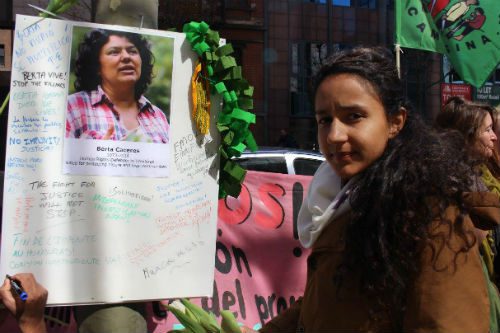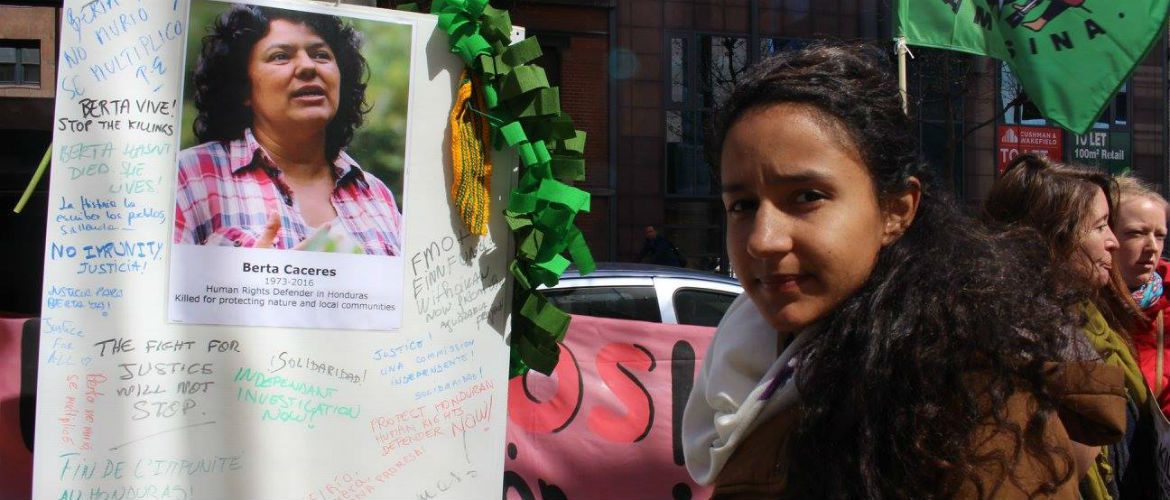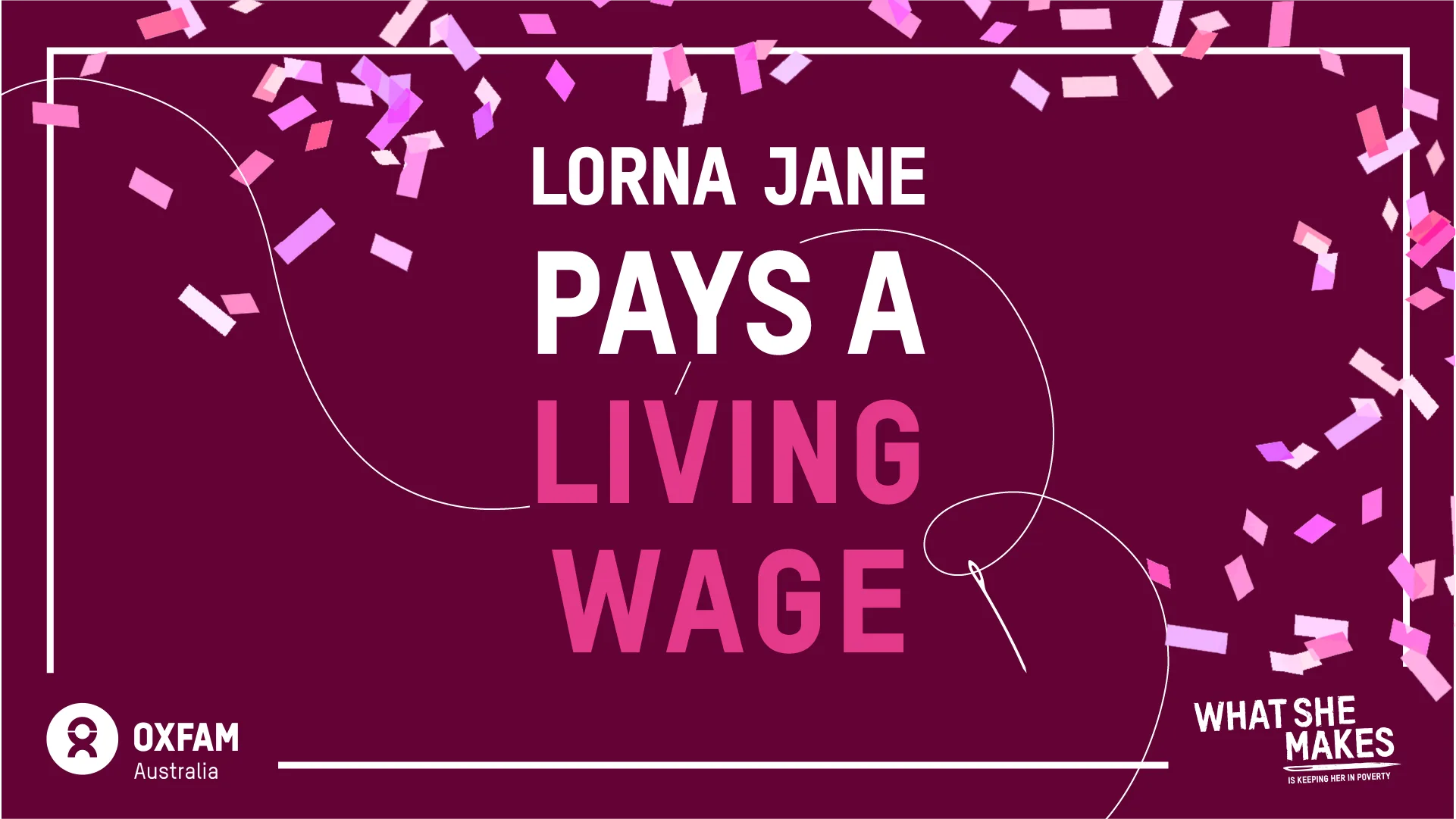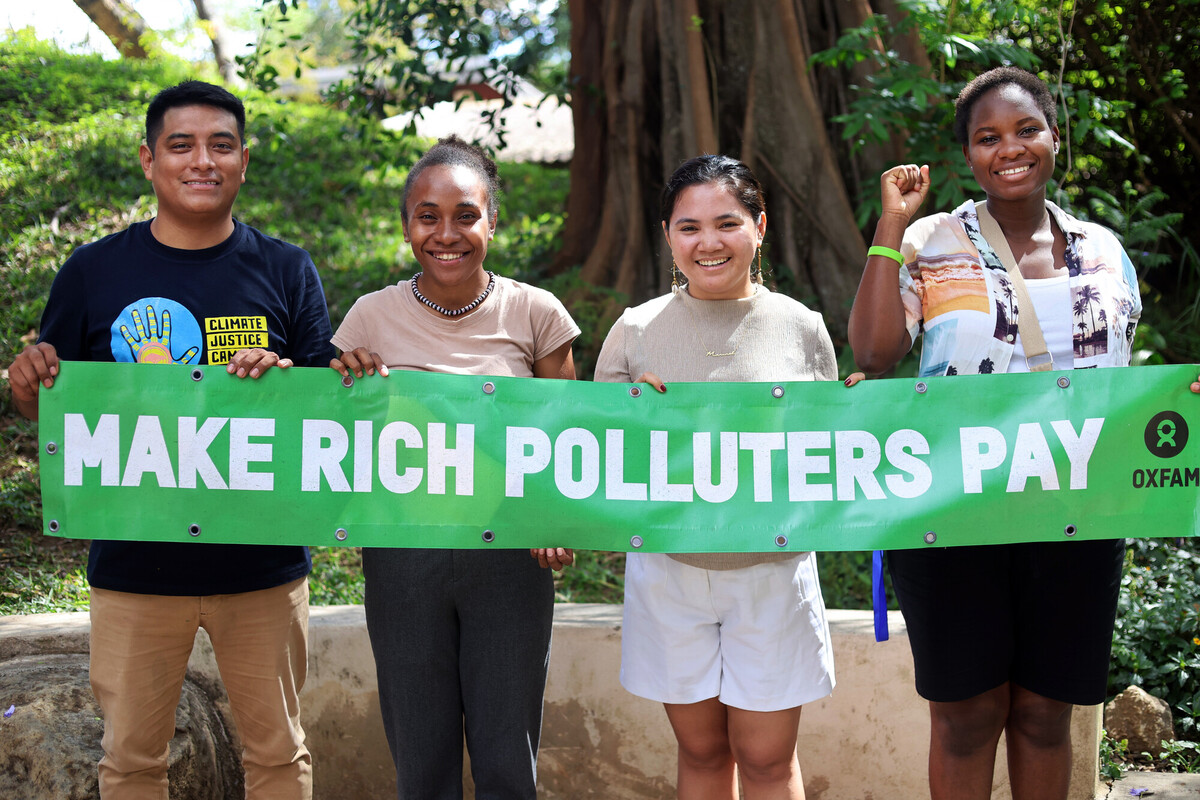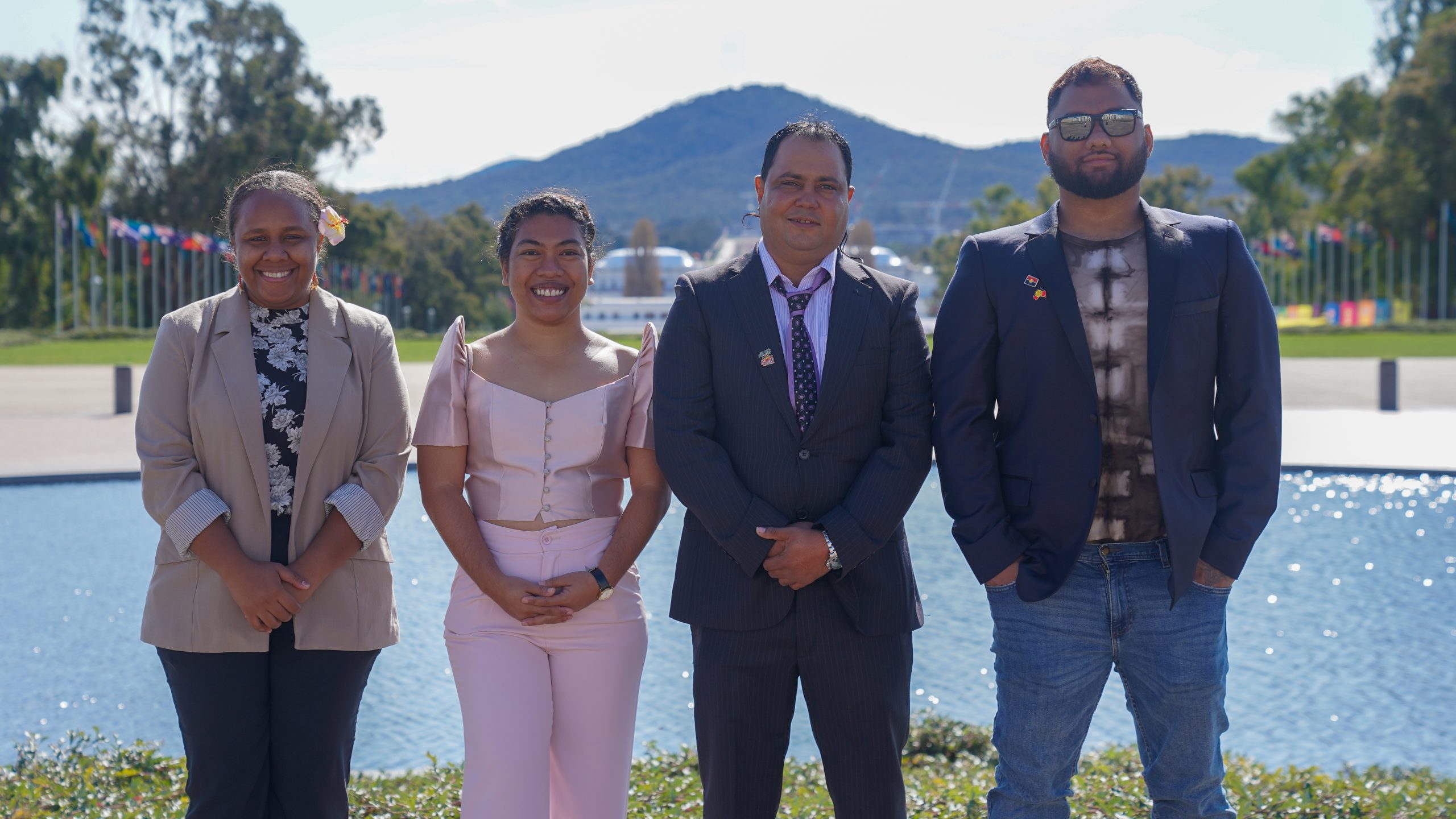Berta Cáceres was brutally murdered on 2 March 2016. Why and by whom? Two months after her death there have been arrests, but investigations need to continue.
The answers are clear however, to her daughter Bertha and the members of Berta’s organisation, the Council of Indigenous and Popular Organizations of Honduras (COPINH).
They are convinced that her death is connected to the Agua Zarca dam project.
COPINH defends the rights of Indigenous Lenca people. Since 2013, Berta and her organisation protested against the building of hydroelectric projects on Lenca territory. For this, she paid with her life.
The death of Berta isn’t the end of her struggle. At the end of April, her daughter Bertha visited Europe together with three members of the Lenca community: Rosalina, Francisco and Jose. They wanted to talk to the international investors of the project, including the Dutch development bank FMO and the Finnish development bank Finnfund.
How it all started
Berta Cáceres and her organisation COPINH have defended the rights of Indigenous Lenca people in Honduras for many years. She protested against companies and the government when people’s rights were denied. One of these projects is affecting the Rio Blanco community.
“Workmen came out of nowhere. They were walking around with measuring tapes and building cement pillars,” says Rosalina.
Only later they received a video message informing them about the arrival of a hydroelectric project. The video promised that the project would not affect their way of life.
The people did not believe it.
The river
Rosalina, Francisco and their community have taken care of the river and defended it for many generations. The river is a lifeline for the community and an important source of water for people, animals and crops. The river is also of great spiritual importance.
“Many rituals take place in and around the river,” says Franciso. “We think the companies won’t have the same respect for the river as we do”.
The health of the river is important for the local people. The community is not only taking care of the river, but also the forest around it.
“Without trees, there is no water. You can see it already at the areas where the companies cut the trees. The water level has dropped there. The companies care about money, not about nature.”
They fear that this project will be followed by other nature-destroying projects, like mining.
Increasing violence
“Before the start of the Agua Zarca project we lived in peace and brotherhood. Since the project there is violence and death,” says Francisco.
After the announcement of the plans for the project, COPINH and Berta Cáceres swung into action. Berta challenged the developer about the rights of the community and started a protest. Francisco says that the police and the military were sent to stop the protest.
The conflict escalated when the community did not give up. Many members of the community, including Rosalina’s brother-in-law, were killed or died in suspicious circumstances.
“Towards the end of 2015 I received a phone call with death threats,” says Francisco. Berta received similar calls. Just a few months later, Berta was killed in her home.
Berta’s courage
Berta received threats for a long time before her death, but it never stopped her from protesting. She kept on fighting for the rights of Indigenous people.
“But Rio Blanco was a special case,” says Bertha. “I just graduated and came back from University. My mother always encouraged me to join her in her visits to the local communities. This time she did not want me to.”
If Bertha did join, special measures were taken to ensure she was protected.
“Her biggest concern was not her own life. Her biggest concern was that they would hurt us, her children.” Despite her fears, Berta continued her work.
Never give up
“My mother taught us not to run when you are scared, but to continue despite threats,” says Bertha.
After Berta’s death, international investors, including the Dutch Development Bank FMO, froze their funds to the project.
“That’s not enough. They need to withdraw their money, not just freeze it,” says Bertha.
She also wants the Honduran Government and the company to be accountable for the crimes.
“It is difficult to see the government as separate from the companies responsible. The government allows companies to act like this, they create the conditions in which the companies operate. The government should also take responsibility.”
The journey to Europe
To address this, the COPINH delegation travelled to Europe. They visited the home countries of the international investors and companies involved in the Agua Zarca project, including the Netherlands, Finland and Germany. They shared their story with ministers and MEPs, talking about the role of the European Union in Honduras.
The message from the COPINH delegation was clear: “We know they are familiar with the situation, but we need them to hear the story again, from us. And we ask them to put pressure on the investors for a definite withdrawal from the project.”
Bertha has had several high-level meetings. So far there hasn’t been any new response from the companies. But she remains hopeful that her visit will make a big difference — not only to the Agua Zarca project — but to all communities in Honduras who face injustice.
BREAKING NEWS AS OF 11/05/16: The Dutch Development Finance Company (FMO) and Finland’s Finnfund, two of the development banks backing the Agua Zarca hydroelectric project in Honduras, have announced they would seek an exit to their involvement in the project.
